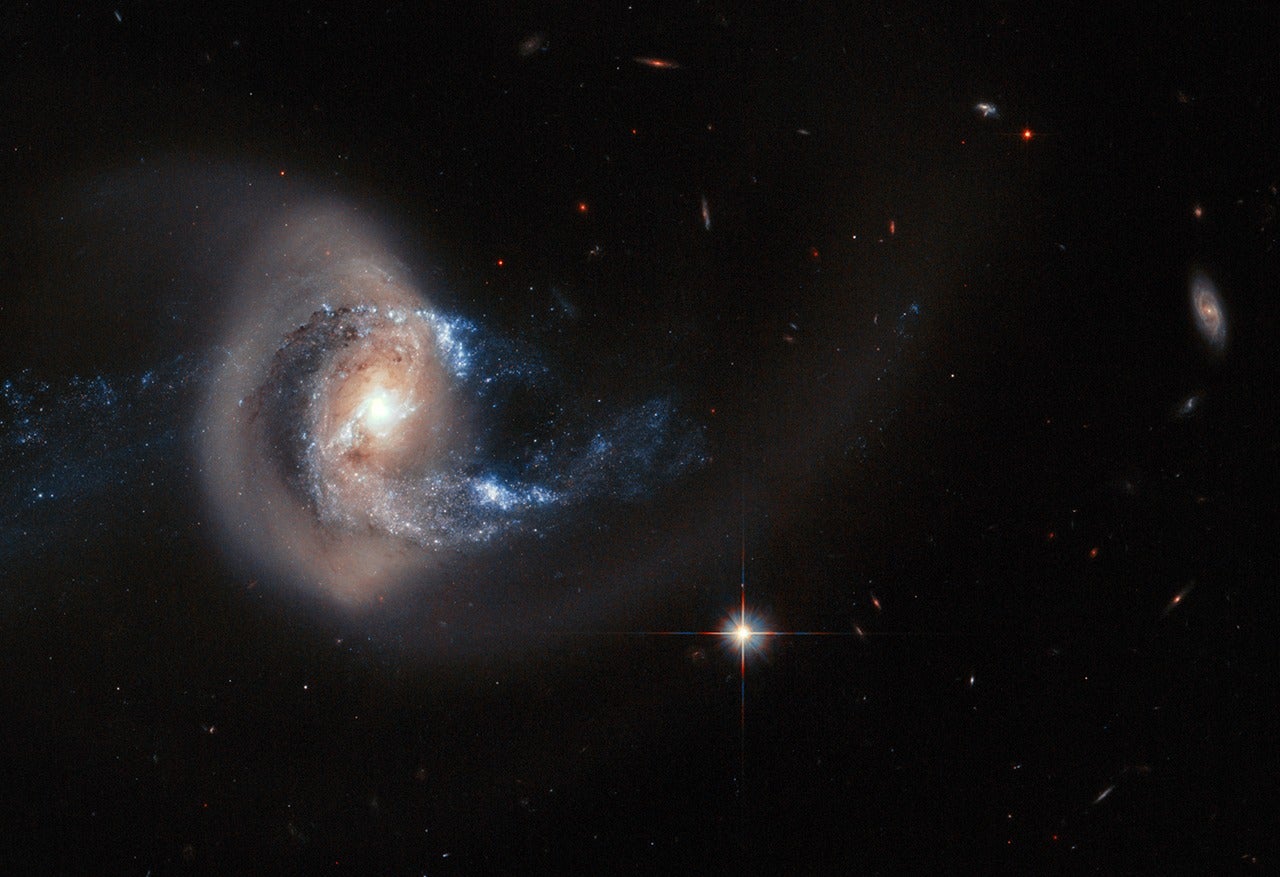
How do scientists weigh celestial objects?
Mike Sackheim
Evanston, Illinois
It’s true that you can’t simply place a planet or galaxy on a scale to measure how heavy it is. Luckily, astronomers have a few tricks up their sleeves.
The first trick is understanding that gravity and mass are inherently linked. It’s important to note that weight — which measures the strength of your local gravitational pull on an object — can change, while mass does not. For example, if you step on a scale on Earth and weigh 150 pounds (68 kilograms), that same scale would read 379 pounds (172 kg) on Jupiter. Your personal mass isn’t what’s changing, but your weight changes because more massive planets exert greater gravitational pull on you than less massive ones.
So, to find the mass of an object, astronomers can simply look at how long it takes nearby bodies to orbit that object. Provided they know the distance between the bodies, they can calculate the mass of the central body. In the case of binary stars, astronomers can observe the stars orbiting each other to determine their combined mass. If the stars are nearby and astronomers can see how closely each star orbits their common center of mass, they can determine each star’s individual mass. For galaxies it’s a little different, but by examining how fast a galaxy is rotating, researchers can similarly determine its mass.
There’s another common trick astronomers can use to estimate mass: luminosity. In most cases, a star or galaxy’s luminosity — how brightly it shines — is roughly proportional to its mass. So, provided you know one, you can solve for the other. In the case of stars, scientists use computer simulations of how these objects evolve to better understand the relationship between a star’s mass and its luminosity — as well as other parameters that can be observed, like temperature and composition.
Caitlyn Buongiorno
Associate Editor

